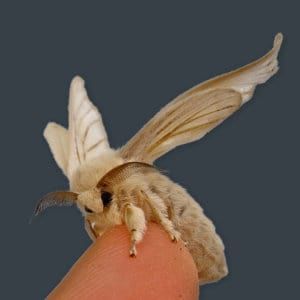Mark Lewis
Seattle area native Mark Lewis is a well-traveled saxophonist and flutist who has created a large body of jazz music over the past four decades. He’s been a part of jazz scenes from Seattle and San Francisco to Rotterdam and Paris. His latest album, Naked Animals, was recorded in 1990 with his Quartet from the Netherlands. It's an important historical recording of a working neo-bop Quartet that had an enthusiastic following for more than a decade. His 2017 release The New York Session features piano legend George Cables, veteran bassist Essiet Essiet and drummer Victor Lewis. Mark was rated number two for alto saxophone (after Richie Cole) and number three for flute (after Charles Lloyd and Hubert Laws) in the 39th Annual Jazz Station Awards for his work on this album.
Born in Tacoma and raised on a farm outside of nearby Gig Harbor, Mark Lewis absorbed music from both sides of his family. His paternal grandmother was a concert pianist, and his maternal grandfather played saxophone (a C melody horn that Lewis started playing at age nine). Despite profound visual impairment, he had free run of the family hi-fi system and soaked up Count Basie, Duke Ellington, and Art Tatum while investigating his parents’ record collection.
Lewis’s waking hours were filled with music through his school years, and he went on to study composition, flute, electronic music, and piano at Western Washington University and the Cornish Institute of Allied Arts.
Settling in Seattle, Lewis started performing regularly at Norm Bobrow’s Jazz at the Cirque showcase, and quickly found invaluable colleagues and mentors amongst resident masters like Art Foxall, Bea Smith, Dee Daniels, and Buddy Catlett. Drum master Otis “Candy” Finch, who moved to Seattle after a sterling New York career recording with heavyweights like Stanley Turrentine, Herbie Hancock and Dizzy Gillespie, recognized Lewis’s budding talent and took him under his wing. He also encouraged him to get out of town, and in 1978 the 20-year-old saxophonist flew to Europe with a one-way ticket and his alto sax, $500 in his pocket, and virtually no contacts.
He ended up making Rotterdam his homebase for the next 14 years, and established himself as a vital force on the international jazz scene as a player, label owner, and producer. Building an extensive network of musical peers amongst Dutch players and American ex-pats (“Johnny Griffin got me my first gig in Europe,” Lewis recalls), he maintained three working Dutch groups, including an organ trio with Carlo de Wijs; an experimental-minded Quartet with Willem Kühne, James Long, and Frans van Grinsven; and a world-jazz quintet featuring musicians from India, Holland, West Africa, and South America.
“I only played original music, and I thought it was a good idea to play everywhere,” Lewis says. “Gigs helped promote the sales of albums. No one wanted to play in Sweden in the winter, the off season. I didn’t mind. I’d play anywhere.”
His record company Audio Daddio became one of the era’s essential outlets, releasing recordings by Art Foxall, Vonne Griffin, Al Hood, Art Lande, and David Friesen. One of the label’s European recordings The Rotterdam Session features tenor saxophonist Clifford Jordan and legendary jazz drummer Philly Joe Jones, in one of his last recordings. Lewis also maintained a strong presence back in the States, spending several long stints in the Bay Area in the 1980s. He gained a considerable following with a quartet featuring drum maestro Eddie Moore, pianist Mark Levine, and bassist Larry Grenadier (the group featured on most of his critically hailed Quartet Records album In the Spirit).
Championed by pianist and jazz scholar Ted Gioia, who produced In the Spirit and wrote the liner notes for The New York Session, Lewis became a vital part of the Bay Area scene, subbing for sax stars Stan Getz and John Handy, and working with heavyweights like Bobby Hutcherson and Randy Brecker.
Now based in Bremerton, a small city west of Seattle on the Puget Sound where he returned to be close to his family, Lewis maintains a busy schedule that includes touring, teaching and recording. He continues to expand his daunting book of compositions, which number over 1,700. Though he’s recorded more than 30 albums, only a fraction of his compositions have been documented on record, another reason why The New York Session is a particularly important release. The discovery of a master improviser is always thrilling, but finding a player/composer at the peak of his powers is a rare occurrence indeed. Though fully aware of his accomplishments, Lewis sees himself as part of a modern jazz continuum. “I try to approach each composition, each performance, with knowledge and technique from studying the masters who came before and also the innocence of a child,” he says. “I hope it keeps the music authentic and genuine.”


